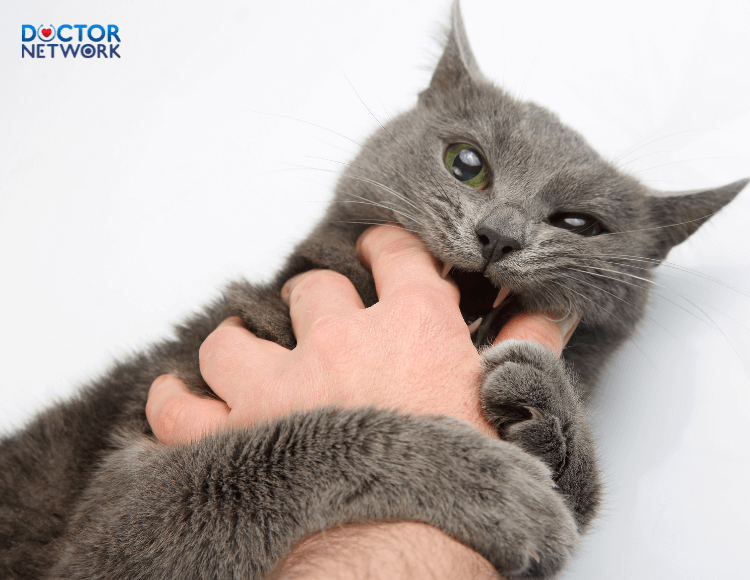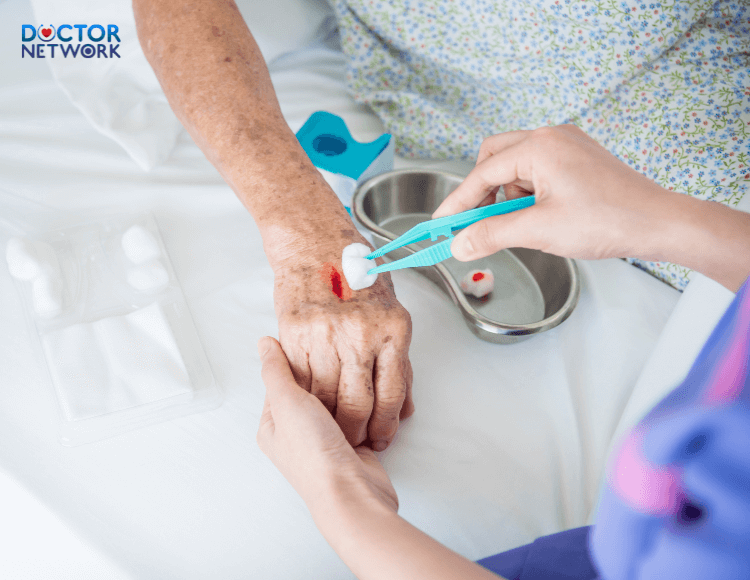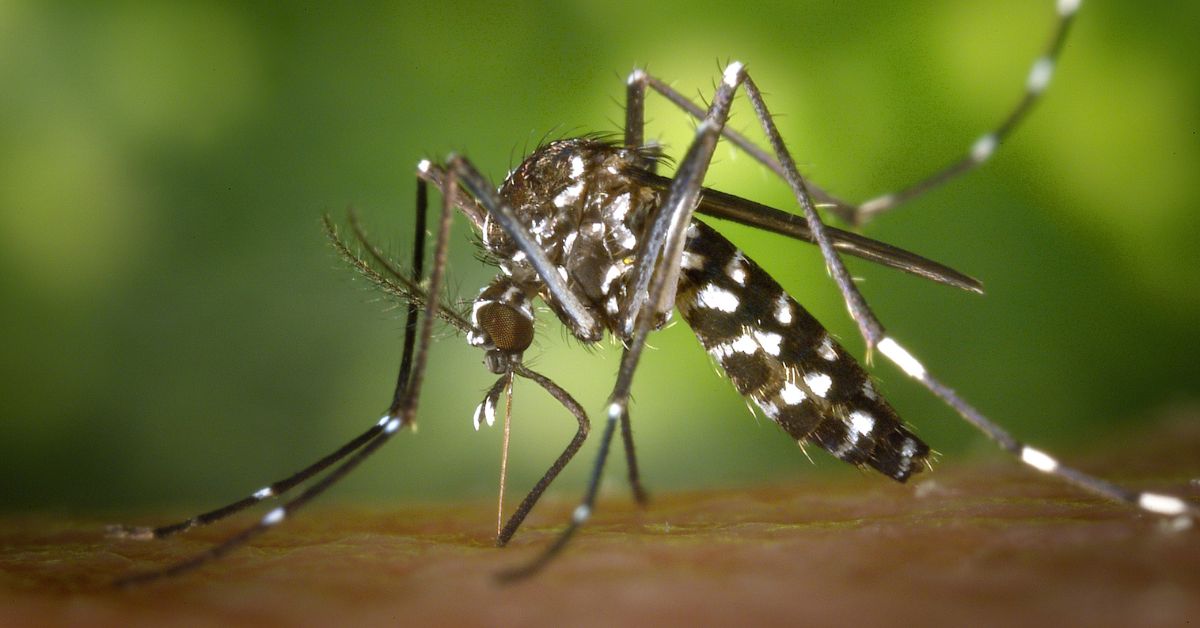Cats are adorable pets that many people love and keep at home. Getting bitten by a cat during interaction or play is inevitable. So, is bleeding from a cat bite serious? Let’s explore this question in the following article!
Is Bleeding from a Cat Bite Serious?
Is bleeding from a cat bite serious? Getting bitten by a cat and experiencing bleeding raises concerns about potential dangers. Cats can pose a risk when they bite and cause bleeding, primarily due to bacteria that can exist in their mouths. Like many other animals, cats can carry bacteria in their mouths, including Pasteurella multocida.
When bitten by a cat, bacteria can be transmitted from their nose or teeth into the wound. These bacteria can cause infection, inflammation, and may spread to the surrounding tissues and bloodstream.
Consequences may include infection, swelling, pain, and, in severe cases, infiltration into the circulatory system leading to more serious health issues such as blood infection.

Is bleeding from a cat bite serious? – The answer is that it could potentially lead to rabies infection.
Signs that a cat bite may become severe and require medical attention include:
- Swelling, redness, and pus in the bitten area.
- The person bitten by a cat shows signs of fever.
- The person bitten has a weakened immune system or an underlying health condition.
- If it has been more than 5 years since the last tetanus vaccination, indicating a reduced immunity to tetanus.
- Uncertain origin of the biting cat or if the cat is feral.
While cases of contracting rabies from a cat bite are uncommon, it’s crucial to treat a cat bite with caution. Approximately 95% of rabies cases are associated with dog bites, while the rate from cat bites ranges from 2% to 5%.
The risk of rabies infection from a cat bite depends on factors such as the amount of virus in the cat’s saliva, disinfection measures, whether the cat has been vaccinated against rabies, etc. Therefore, after being bitten by a cat, it’s important to confine the cat, perform first aid on the bite, and consult a doctor to determine the potential risk of disease transmission.
Is Vaccination Necessary for Bleeding from a Cat Bite?
1. Handling the Wound from a Cat Bite with Bleeding
If you are bitten by a cat and the wound is bleeding, it is crucial to handle the wound carefully to prevent infection and potential health issues.
Steps to deal with a bleeding cat bite wound include:
- Cleaning the wound: Use soap and clean water to thoroughly clean the bitten area. Wash for at least 5 minutes to eliminate bacteria that may cause infection.
- Cleaning and applying antibiotics: Apply anti-inflammatory and antibiotic ointments to prevent the spread of bacteria.
- Check with a doctor: If the cat bite wound is very deep, bleeding profusely, or shows signs of infection, seeking treatment from a doctor or healthcare facility is essential.

If the cat bite wound is deep, it is advisable to seek medical attention at healthcare facilities for proper examination
- Monitoring symptoms: Monitor for unusual symptoms such as swelling, pain, redness, warmth, and other signs of infection. If any symptoms arise, consult a doctor immediately.
When bitten by a cat and experiencing bleeding, the most important aspect is prompt and careful handling to ensure infection does not occur and to avoid serious complications.
2. Is Vaccination Necessary for Bleeding from a Cat Bite?
When considering vaccination after being bitten by a cat and experiencing bleeding, experts recommend receiving a serum or rabies vaccination in the following situations:
- Cat bites causing bleeding in nerve-rich areas such as the face, neck, head, genitals, fingers, or toes. Regions close to nerves may facilitate faster virus movement and cause more severe nerve damage.
- Observation of bitten cats for signs such as red, aggressive behavior, paralysis, foaming at the mouth, hiding in dark places, refusing to eat, and dying after biting a person within 7-10 days.
- A cat bite causing extensive bleeding or deep wounds.
- Being bitten by a feral or unconfined cat that cannot be observed for signs.
Vaccination with a combined rabies serum is recommended to prevent up to 99% of the risk of rabies infection from cats to humans. Even in the case of scratches, vaccination is necessary.

Vaccination helps prevent the risk of infection
The most effective time for rabies vaccination is within 24-48 hours after being bitten by a cat. Delaying vaccination will reduce its effectiveness over time. After 7 days of being bitten by a cat, vaccination is almost ineffective.
In conclusion, when bitten by a cat and experiencing bleeding, timely and cautious handling is crucial to ensure infection does not occur and to prevent serious complications. Vaccination, particularly for rabies, is recommended in certain situations to reduce the risk of disease transmission.
This article aims to provide information on “Is bleeding from a cat bite serious?” and how to handle the situation.
Kiểm Duyệt Nội Dung
More than 10 years of marketing communications experience in the medical and health field.
Successfully deployed marketing communication activities, content development and social networking channels for hospital partners, clinics, doctors and medical professionals across the country.
More than 6 years of experience in organizing and producing leading prestigious medical programs in Vietnam, in collaboration with Ho Chi Minh City Television (HTV). Typical programs include Nhật Ký Blouse Trắng, Bác Sĩ Nói Gì, Alo Bác Sĩ Nghe, Nhật Ký Hạnh Phúc, Vui Khỏe Cùng Con, Bác Sỹ Mẹ, v.v.
Comprehensive cooperation with hundreds of hospitals and clinics, thousands of doctors and medical experts to join hands in building a medical content and service platform on the Doctor Network application.


























